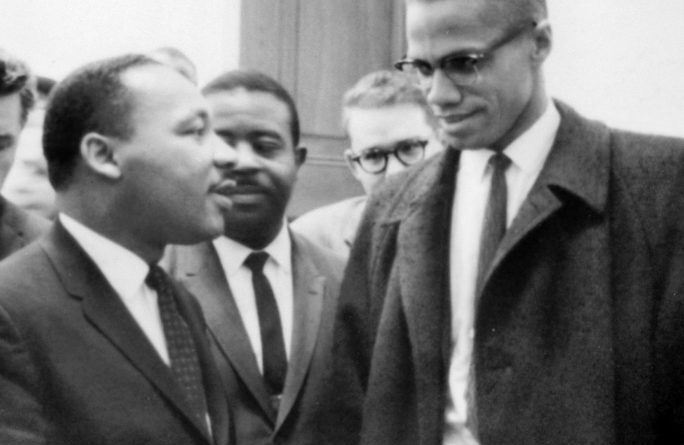MLK’s Criticism of Malcolm X In Playboy Interview Was ‘Just Not True’
An author researching for his upcoming biography on Dr. Martin Luther King Jr. was surprised to learn the famed civil rights activist’s criticism of Malcolm X was allegedly fabricated.
For nearly six decades, it’s long been believed that MLK had reservations about Malcolm X’s approach to the Black community’s fight for racial and social equality. MLK sat down with a Black journalist for a Playboy interview published in January 1965, where he accused his fellow civil rights leader of “fiery, demagogic oratory.”
However, according to Jonathan Eig, a writer working on a new MLK biography, he’s done enough research on the interview to realize that King’s alleged judgment of Malcolm X was extremely exaggerated.
“I think its historic reverberations are huge,” Eig told The Washington Post.
“We’ve been teaching people for decades, for generations, that King had this harsh criticism of Malcolm X, and it’s just not true.”
What’s long believed to have been a divide between MLK and X’s fight for justice “shows that King was much more open-minded about Malcolm than we’ve tended to portray him,” Eig said.
While conducting research at Duke University for his MLK biography King: A Life, out May 16, Eig found a possible unedited transcript of King’s full interview with then 43-year-old journalist Alex Haley. The transcript was likely typed by a secretary straight from a recording, Eig believes.
On page 60 of the 84-page document, Haley asks, “Dr. King, would you care to comment upon the articulate former Black Muslim, Malcolm X?”
To which King responded.
“I have met Malcolm X, but circumstances didn’t enable me to talk with him for more than a minute,” the civil rights leader said at the time.
“I totally disagree with many of his political and philosophical views, as I understand them. He is very articulate, as you say. I don’t want to seem to sound as if I feel so self-righteous, or absolutist, that I think I have the only truth, the only way. Maybe he does have some of the answer. But I know that I have so often felt that I wished that he would talk less of violence, because I don’t think that violence can solve our problem. And in his litany of expressing the despair of the Negro, without offering a positive, creative approach, I think that he falls into a rut sometimes.”
However, when reviewing the final version of the interview published in Playboy, King’s last sentence drastically differed from what was included in the original transcript.
“And in his litany of articulating the despair of the Negro without offering any positive, creative alternative, I feel that Malcolm has done himself and our people a great disservice,” Playboy claimed King said. “Fiery, demagogic oratory in the black ghettos, urging Negroes to arm themselves and prepare to engage in violence, as he has done, can reap nothing but grief.”
Alex Haley, the journalist behind the original interview, was accused of plagiarism and historical inaccuracy in his most famous book, Roots. The latest findings could further tarnish Haley’s The Autobiography of Malcolm X: As Told to Alex Haley,” which was released nine months after Malcolm X’s assassination in 1965.
RELATED CONTENT: Martin Luther King Jr. and Malcolm X To Lead Season 4 Of Nat Geo/Disney+’s Genius

